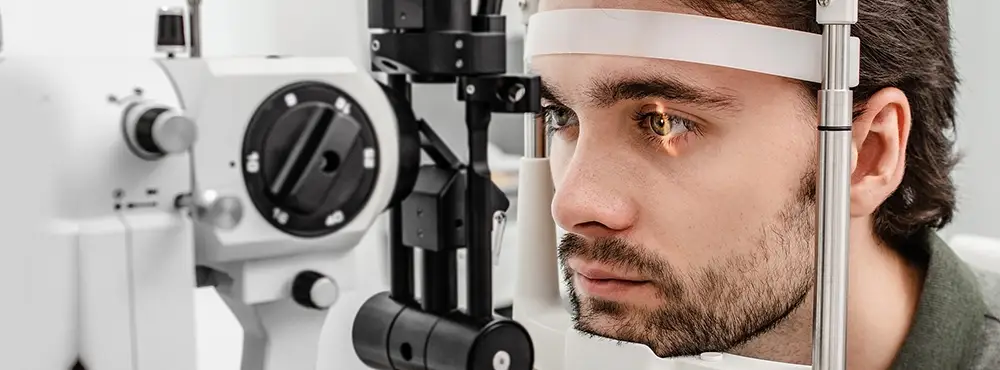Regular eye tests are very important. Many believe that eye tests are just a way to find out whether they need to start wearing glasses or if there is a change in their prescription. But in reality, eye tests offer more than that. They can help identify various health issues early on, including diabetes, brain tumours, heart diseases and more.
When to get your eyes tested
Here are some situations in particular that call for an eye test:
- If your eyes feel itchy, red or dry or you're observing spots, flashes of light, or floaters
- If you can't recall your last eye exam and it's been over two years
- You’re having nighttime driving difficulties or challenges reading street signs in the dark
- You’re experiencing eye strain, headaches, or blurry vision after prolonged computer use
- You have motion sickness, dizziness, or difficulty tracking moving objects
- Having to hold reading materials farther away, squinting, or closing one eye to read clearly
- Any changes in vision, particularly after head trauma should be raised
If you have diabetes or any other eye-related health condition, and/or you have a family history of diabetes or glaucoma, you may require more frequent eye exams, particularly if you’re aged 50 or over.
How often do you need an eye test?
It is recommended to have an eye test at least once every two years. But if someone is experiencing any eye issues or has any concerns about their vision, they should have an eye test as soon as possible.
Why it's important to have regular eye exams
Eye exams play a vital role in detecting eye conditions and vision problems, including age-related macular degeneration, glaucoma, diabetic retinopathy, and cataracts. Glaucoma often exhibits no symptoms in its early stages. Failing to undergo regular eye tests puts individuals at risk of losing their vision, especially since glaucoma can progress without any signs until irreversible damage occurs. Moreover, those with prediabetic conditions face an elevated risk of developing diabetic eye disease, a condition that can lead to blindness if left untreated.
Beyond vision-related issues, routine eye exams also serve as a valuable means of identifying general health problems. Missing regular eye examinations may result in overlooking early signs of serious health conditions such as diabetes, cancer, and high blood pressure being missed. Early detection is crucial, as symptoms of various eye diseases remain unnoticeable until significant progression has taken place, potentially leading to irreversible vision loss. Through a comprehensive eye exam, healthcare professionals can also provide insights into an individual’s overall health. Regular eye tests, therefore, serve as a proactive measure to safeguard both eye health and overall well-being.
How to book an eye test
There are various ways that you can book an eye test. Some opticians have an online booking system that allows you to book an appointment through their website - an online search will easily find you the opticians most local to you. You can also ring the optician of your choice and arrange an appointment over the phone.
You can also find an optician in your area through the NHS website by finding an NHS sight test for yourself, additionally, you’ll be able to check if you can get the test done for free. Just enter your town, city or postcode, choose the area and get the list of opticians available along with their addresses and contact numbers.
Can I get a free eye test in the UK?
Yes, you can get an eye test done in the UK. NHS does offer free eye tests to those who are eligible for it. Check the complete eligibility criteria for NHS free sight tests and see if you are entitled to it.
When should a child get an eye test?
A child’s eyes may be checked a number of times in the initial hours, weeks, and years of their life. As a part of the newborn physical examination, a child’s eyes are checked within 72 hours of the birth. They may be again checked between the 6th and 8th week of the birth for any vision difficulty or issue that was not identified right after the birth. This is followed by another test once a child starts going to school around 4 or 5 years of age.
The NHS offers free eye tests to children under 16 years of age. You can get all the information you need regarding free eye tests for children on the official NHS website.
Disclaimer: The advice in this article is for informational purposes only and does not replace medical care or an in-person check-up. Please check with an eyecare professional before purchasing any products or remedies. For information on our article review process, please refer to our Editorial Policy.

 Offers
Offers Account
Account
 Favorite
Favorite
 Basket
Basket

 OFFERS
OFFERS
















